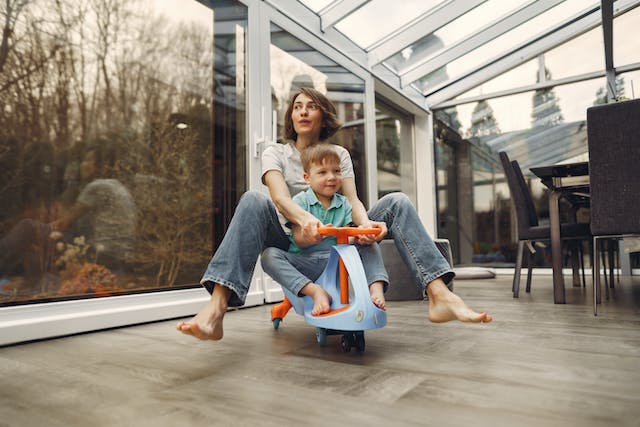Introduction:
Cleaning up as a family can be a daunting task, especially when you have kids. But involving your children in the cleanup process not only lightens the load but also teaches them essential life skills and responsibility. If you’re looking to take your family cleanup crew to the next level, here are seven advanced strategies to get your kids enthusiastically involved in the process.
Create a Cleanup Schedule
To make cleanup a consistent part of your family’s routine, establish a cleanup schedule. This should be a set time each day or week when everyone in the family comes together to tidy up the house. This consistency helps kids understand the importance of cleanliness and prepares them to contribute actively. To make it even more engaging, give each child specific responsibilities that rotate each week. This keeps things fresh and ensures that every family member gets a chance to experience different aspects of cleaning.

Set High Standards
Teach your children the importance of doing a thorough job. Instead of just picking up toys or clothes and shoving them in a corner, emphasize the significance of putting things away properly. Show them how to fold clothes neatly, organize toys, and arrange items in a systematic manner. This not only makes the house look better but also instills a sense of discipline in your kids.
Turn Cleaning
Kids often respond well to challenges and games. Create a cleaning game to make the process more enjoyable. You can set a timer and challenge your children to clean up as much as they can before the timer goes off. Alternatively, make a scavenger hunt by listing items that need to be put away, and see who can find and tidy up the most items.
Special Cleaning Tools
Kids love having their own special tools. Invest in child-sized cleaning equipment like small brooms, dustpans, and colorful cleaning cloths. This not only makes them feel more involved but also helps them reach and clean areas that might be challenging with regular-sized tools. They’ll be more likely to participate if they have their own fun and functional cleaning gear.
Rewards and Recognition
Positive reinforcement is a powerful motivator. Create a rewards system where your kids can earn points or stickers for completing their cleaning tasks. Once they accumulate a certain number of points, they can trade them in for a special treat or privilege. Additionally, don’t forget to praise and recognize their efforts. A simple “good job” or a high-five can go a long way in encouraging participation.
Lead by Example
Children learn by observing their parents. If they see you taking cleaning seriously and being actively involved in the cleanup process, they’re more likely to follow suit. Show them that cleaning isn’t a chore but a necessary and rewarding activity. You can even turn on some music and make it a family cleaning party, where everyone participates together.

Teach Life Skills
Use cleanup time as an opportunity to teach your kids valuable life skills. Explain the importance of organization, time management, and responsibility. Show them how cleaning can be therapeutic and help reduce stress. These life skills will serve them well in the future and contribute to their overall development.
KeyPoint.
| Strategy | Description |
|---|---|
| Create a Cleanup Schedule | Establish a routine for cleanup, assign specific responsibilities, and rotate tasks regularly. |
| Set High Standards | Emphasize thorough cleaning to instill attention to detail and a sense of pride in their work. |
| Turn Cleaning into a Game | Make cleanup enjoyable by introducing challenges, timers, or scavenger hunts to engage kids. |
| Provide Special Cleaning Tools | Invest in child-sized cleaning equipment to make the process more accessible and fun for children. |
| Offer Rewards and Recognition | Implement a rewards system to motivate kids and provide praise and recognition for their efforts. |
| Lead by Example | Demonstrate active participation in cleaning to model the desired behavior for your children. |
| Teach Life Skills | Use cleanup time to teach valuable life skills like organization, time management, and responsibility. |
Conclusion:
Establishing a routine for cleanup teaches your children the importance of consistency. When they know that cleanup time is a regular part of their day or week, it becomes a habit, and they are more likely to willingly participate. Moreover, rotating responsibilities ensures that they gain a broad set of cleaning skills and prevent any sense of monotony Teaching your children to do a thorough job not only improves the overall cleanliness of your home but also imparts valuable life skills. They learn the significance of attention to detail and taking pride in their work. This can translate into a broader sense of responsibility in other areas of their lives. Kids love games and challenges. Incorporating a competitive or fun element into cleanup makes the task less of a chore and more of an engaging activity. It keeps their interest alive and motivates them to complete their tasks within a specified time frame.












